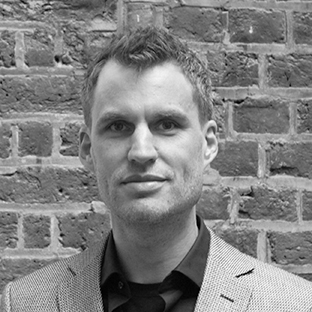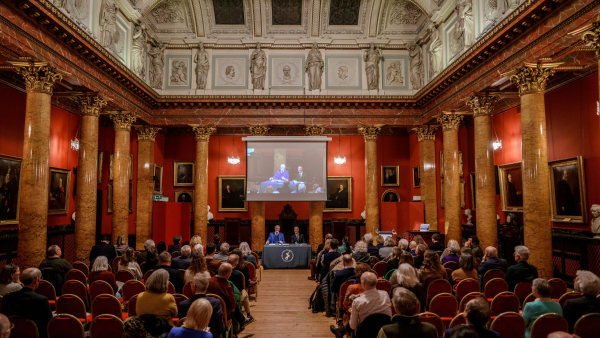Ian Burbidge argues that building strong foundations for the future requires collective effort, with the public and private sectors both playing a part.
We attend to challenges in the places where they manifest: in the neighbourhoods, parks, estates and town centres where we go about our daily lives. Our ability to succeed depends on the range of collective resources and assets available. Yet, in many western countries, our responses have been fatally undermined. In the UK, Covid-19 has exposed the extent to which our society is riven by structural faultlines, exacerbated by a policy of austerity that has undermined the resilience of people, communities and institutions to effectively absorb the shock of a crisis.
We have cut support for the most vulnerable, leading to worsening living conditions. Action for Children finds that early intervention services for children have seen spending cut by 46 percent in the eight years to 2018/19 and, according to the Office for National Statistics, the difference in life expectancy between the most and least deprived areas in England widened between 2013 and 2018.
We have also systematically disinvested in our communities, particularly the poorest. According to a 2019 report by the Institute for Fiscal Studies, in the decade since 2009/10, cuts per person in the 10 percent most deprived council areas have averaged 31 percent, compared with 16 percent cuts in the least deprived 10 percent. This has resulted in the closure of valuable community assets and charities folding as grants and donations fall. The ability of our communities to weather the storm of crisis is also reliant on the amount of social capital they have and people’s desire and ability to step into the spaces left by a retreating state.
Emerging futures

In January 2021, with funding from the National Lottery’s Emerging Futures Fund, the RSA held a series of community listening events in Birmingham, Norfolk, Lothian and the North West region of England to hear about how people are taking action. This work forms part of our exploration of how communities are coping with Covid-19 and how this may lay the foundations of the future that local citizens want. What can we learn from this endeavour if we are to put in place some firm foundations for the future?
Out of necessity, and against the odds, communities, the wider public sector and civil society have stepped up and worked together to respond to local needs, largely in the absence of effective direction, investment or coordination from government. People were supporting local community businesses and shops, more appreciative of their local neighbourhoods and keen to have more of a say in their development. As one participant said: “I’m getting more involved in local grassroots action that has been increasing over the past decade as mainstream services have been withdrawn.” We heard about the stresses experienced by those running local groups and social enterprises about rising need and adapting to changing circumstances, and of the sense of pride and reward intrinsically involved in this endeavour.
These social entrepreneurs and community leaders had the crucial feedback loop of seeing first-hand the people in their own communities benefit. They are an important part of the picture, operating alongside local government, education, health services and the wider public, private and charity sectors.
Making social innovation a reality
According to figures from UnLtd, a foundation for social entrepreneurs, one in four people who want to start a business want to create a social enterprise. Operating in the space between the state and the private sector, social entrepreneurs are critical agents in local change processes. Their perspective, unique set of skills and competencies allow them to see new ways of responding to societal problems. Close to the ground, they have skin in the game, living in the communities in which they operate and having a deep and direct understanding of local problems. The social innovation processes that they draw upon are typically powered by community goodwill and social capital, as well as more traditional assets and resources. They are able to test new ideas, actively involving citizens throughout the innovation process to ensure they respond to needs, while creating a sense of communal ownership of new products, services and processes.
Local leaders in all sectors and organisations need to actively grow and support an ecosystem of social innovation and enterprise that empowers citizens to make the changes they want to see locally. The public sector must do much more to open its arms to the efforts of social entrepreneurs and community organisers; this will not be easy, as it involves transferring power and legitimacy to citizens and developing new ways of funding and budgeting. We must move beyond slow commissioning processes that assume we can specify all of the deliverables in a complex situation and avoid combative contractual delivery relationships that are doomed from the start. Instead, we should do more to invest in the infrastructure that enables enterprise and voluntary endeavour to flourish.
These organisations will emerge and adapt; they will prototype, test and learn what works, prioritising needs over profit. New forms of partnership are needed in which budget-holder and fundee learn together and ensure value for money. Local public services have long experimented with mechanisms such as devolving budgets directly to communities and community-led commissioning. These approaches should be amplified and include more spend that is currently controlled by central government. For government to mandate innovation is to fail to see that in complex situations it can only ever be context- and person-specific; without decentralisation of the process of innovation gets crowded out.
Foundations for the future
Rather than responding to poverty through private sector delivery of food parcels what about leveraging local food supply chains? Greening the supply chain, supporting local jobs and stronger relationships with providers are all intangible benefits when overseen from afar but massively important locally. The principle of subsidiarity – the idea that decisions should be taken at the closest geographical scale to the people and communities impacted – should apply to commissioning and public expenditure.
This requires a fundamental rethink and realignment of what it means to live in a society in which the talents of everyone are valued and liberated. We may enter an extended period of time post-Covid-19 in which new ideas and innovations flourish, driving competition between them. This is the natural order of things: those ideas that are the best fit for the changed context are most likely to survive but government needs to reign in its controlling instincts if good ideas are to flourish.
Ultimately, establishing foundations for the future is not about public or private, local or national, paid or voluntary, social enterprise or philanthropy, economic growth or sustainable resource use. Our communities need a mix. There are other crises at play, notably climate change. How we learn from Covid-19 will go a long way in shaping how we respond. If the conversations the RSA has been having are anything to go by, community has to be at the heart of this action. Perhaps that is it, in a sentence. It is time we saw community not as a noun, but as a verb.
Ian is Head of Innovation and Change at the RSA. Follow on Twitter @ianburbidge.
The RSA has been at the forefront of societal change for over 250 years – our proven Living Change Approach, and global network of 30,000 problem-solvers enables us to unite people and ideas to understand the challenges of our time and realise lasting change.
Make change happen. Find out more about our approach. #RSAchange





Be the first to write a comment
Comments
Please login to post a comment or reply
Don't have an account? Click here to register.